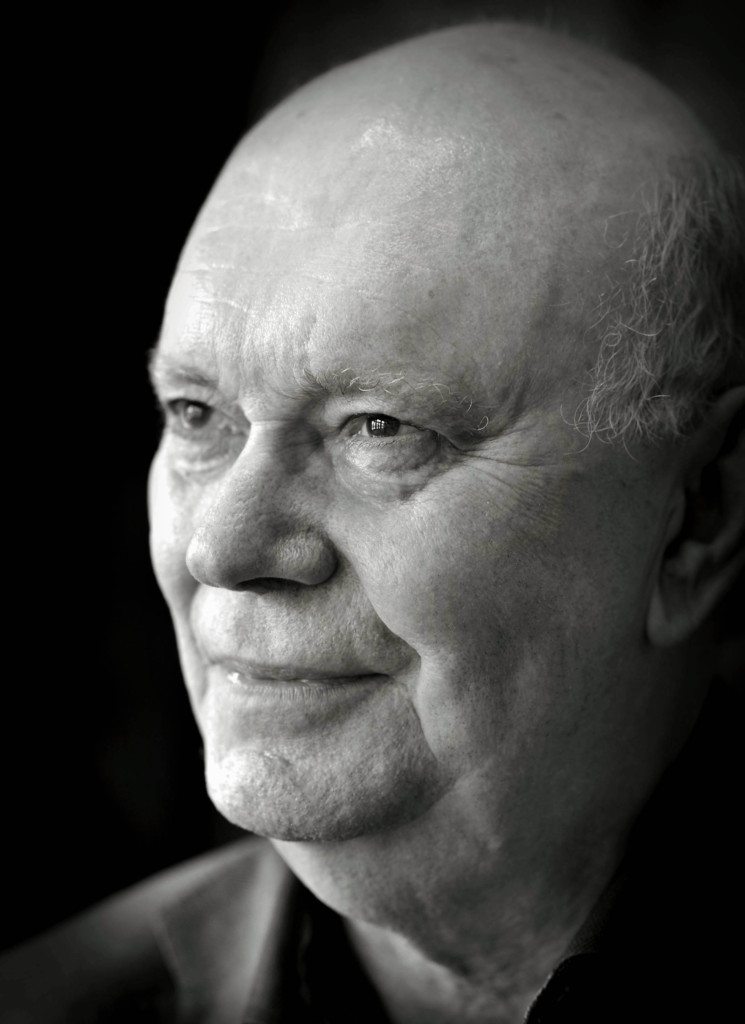In Conversation with Alan Ayckbourn
Boar Arts sent Katherine Price to find out what Alan Ayckbourn says about theatre success and his thoughts on the director’s role.
An eruption of applause broke out as Sir Alan Ayckbourn, British theatre legend, entered Warwick Arts Centre’s Woods-Scawen theatre. When described as ‘the greatest British playwright living’ by his biographer and interviewer Paul Allen, he grimaced and swept away all pretensions with a wave of his hand, as if embarrassed to have such praise heaped upon him. Coming off as approachable, modest and good-natured, he did seem to be one of the nicest characters I have encountered in theatre.
With over 50 years of playwriting and directing under his belt, and 78 productions to date, Ayckbourn is one of the most successful and esteemed living playwrights and directors. He chattered on good-naturedly, like a grandparent recalling a story, chuckling to himself occasionally on recalling a humorous anecdote from productions past.
One of the productions at the Arts Centre was a re-visitation of Ayckbourn’s 1992 play Time of My Life. Paul Allen questioned the decision to allow it to resurface, and whether it was due to an unsatisfactory first run. This did happen to be the case. Without divulging too much, Ayckbourn described a ‘feud’ that developed once the play was taken to London’s West End and the insistence on ‘star casting’.
‘My plays were written for five or six people, not one plus four,’ he stated, criticising the overshadowing that can occur with a celebrity addition to a cast. He felt a ‘terrible sense of betrayal’ at the removal of two of the original cast members, and defined the play as ‘a family play’ that ‘relies on intense team-work.’ He discussed how the use of a ‘celebrity’ actor in a play, which was meant to have fairly equally balanced characters, it can be- come imbalanced, which was unfortunately what happened in this case.
Ayckybourn attributes J B Priestley to his interest in the theme of time. One anecdote shared was the first time Ayckbourn met Pristley, early on in his career. Being introduced, Priestley reportedly said: ‘You’re a very good writer,’ to the then young playwright, ‘…or so I’ve heard,’ he then added. Ayckbourn laughed heartily at this recollection.
He emphasised the importance for him of actor-led performances, with the director acting only as a sheepdog figure, guiding the production and actors into place. ‘What you say is very important,’ he said, suggesting that a good director tries to resist instinctively exploring actors’ methods.
Talking about his younger days under the tutelage of the late director Stephen Joseph, Ayckbourn said his mentor once challenged him: ‘Why don’t you write a well-made play with all the rules you know?’ Rebelling against traditional theatre, Ayckbourn refused, preferring experimentation to conformation. That is, until it became a bet. That bet became his first West End hit. Once he learned the ‘rules of theatre’ he was able to successfully break them, seemed to have been the lesson he learned.
But what exactly does Sir Alan Ayckbourn write for? According to the man himself, he writes characters that we can recognise in those around us. Here he recalled how one couple left a theatre commenting, ‘Well at least our marriage isn’t as bad as that!’ He continued: ‘I’d like them to know more about the human race… another perspective… and have a bit of fun on the way.’

Comments